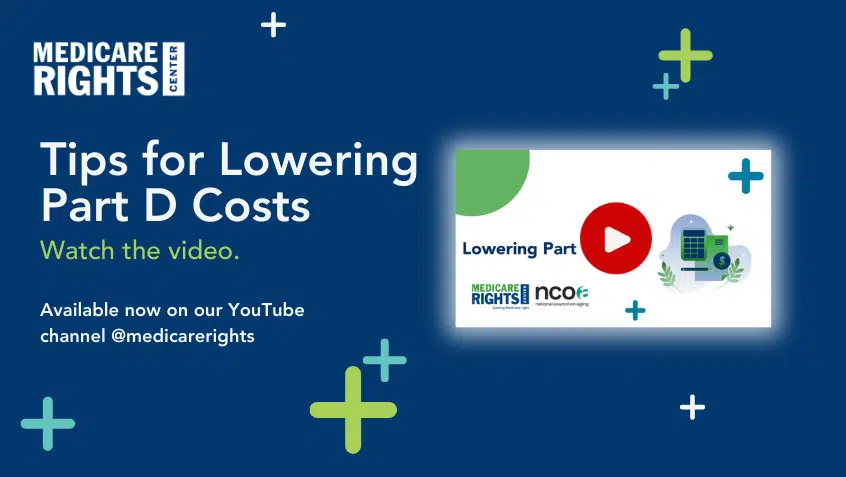Join Us Live for a Discussion on Medicare, Democracy, and the Future of Health Care
Medicare Rights Responds to MedPAC Recommendations on Part D

Last week, Medicare Rights wrote to the Medicare Payment Advisory Commission (MedPAC) responding to three proposals under consideration by MedPAC to alter the Part D prescription drug program. Established in 1997, MedPAC is an independent federal body made up of 17 members with diverse expertise in the financing and delivery of health care services. MedPAC regularly makes recommendations to Congress regarding the administration of the Medicare program.
In the letter to MedPAC, we express support for the proposal to implement a hard cap, or out-of-pocket maximum on beneficiary cost-sharing, in Part D plans. Currently, when beneficiaries spend a certain amount out-of-pocket, they reach “catastrophic coverage” and their cost-sharing is reduced to a maximum of five percent of the cost of the medication. Yet, for some beneficiaries, even this five percent coinsurance can be a significant burden, jeopardizing access to needed medications and financial stability.
The letter also provides comment on a proposal to change cost-sharing for Low-Income Subsidy (LIS) beneficiaries. The proposal would reduce cost-sharing for generic medications—which we support—but would also increase cost-sharing for brand name medications. We continue to voice concern regarding any proposed increase in cost-sharing for LIS enrollees. Research consistently demonstrates, and our experience confirms, that prescribing choices are often driven by provider preferences—not beneficiary demand. Given this, we encourage MedPAC to recommend enhanced educational initiatives for health care providers and beneficiaries to increase awareness and acceptance of generic prescribing before imposing any additional cost burdens on low-income beneficiaries for brand name medications.
Finally, we caution against the adoption of proposals to increase Part D plans’ flexibility in light of documented failures by prescription drug plans to adequately operate coverage and appeals processes. While the intentions of these proposals are good—to give Part D plans more options and opportunity to negotiate competitive drug prices—without strong consumer protections increased flexibility could mean decreased access for beneficiaries. We encourage MedPAC to revisit this recommendation and to support policy options to make the Part D appeals process easier for beneficiaries to navigate.
Read the letter:
Show Comments
We welcome thoughtful, respectful discussion on our website. To maintain a safe and constructive environment, comments that include profanity or violent, threatening language will be hidden. We may ban commentors who repeatedly cross these guidelines.
Help Us Protect & Strengthen Medicare
Donate today and make a lasting impact
More than 67 million people rely on Medicare—but many still face barriers to the care they need. With your support, we provide free, unbiased help to people navigating Medicare and work across the country with federal and state advocates to protect Medicare’s future and address the needs of those it serves.
The Latest
Most Read
Add Medicare to Your Inbox
Sign up to receive Medicare news, policy developments, and other useful updates from the Medicare Rights.
View this profile on InstagramMedicare Rights Center (@medicarerights) • Instagram photos and videos









